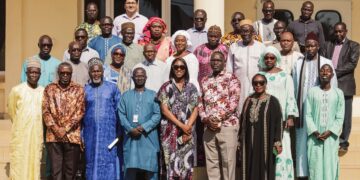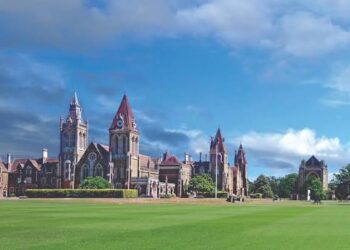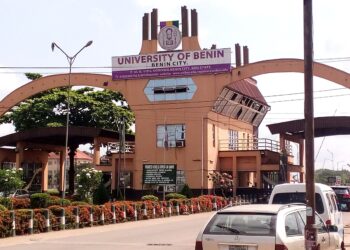Education remains one of the most critical catalysts for socio-economic development in Nigeria. It is the most viable avenue through which individuals can transform their lives and contribute meaningfully to national growth. Nigeria’s educational system operates on three broad levels—primary, secondary and tertiary—ensuring systemic progression.
However, tertiary education, which includes universities, polytechnics and colleges of education offering graduate, postgraduate, technical and professional qualifications, faces significant challenges. Chief among these is limited access to financial resources, which has hindered opportunities for Nigerians to develop skills and secure higher education.
While many Nigerians traditionally frown upon loans, student loans present a credible alternative in addressing the financial barriers to education, particularly against the backdrop of the country’s current economic difficulties. This article examines the funding challenges in Nigeria’s education sector and highlights the role of student loans in mitigating them.
What Are the Problems We Are Failing to See?
Nigeria’s transition from secondary to tertiary education is fraught with challenges, particularly concerning enrolment and institutional capacity. Publicly funded universities, polytechnics and colleges of education exist across the country, yet their admission capacity remains insufficient to accommodate all qualified applicants. In contrast, private institutions often have the required capacity and facilities, but their exorbitant tuition fees—running into millions of naira—place them far beyond the reach of most Nigerians.
The result is a persistent education gap. Statistics show that while over 70% of children enrol in primary school, dropout rates rise sharply at the secondary and tertiary levels. Fewer than half of school-age children make it to tertiary institutions, and hundreds of thousands of qualified candidates are denied admission each year due to limited spaces.
How Underlying Socio-Economic Factors Contribute to the Problems
Financial constraints remain one of the most significant barriers to educational attainment in Nigeria. Families often struggle to meet tuition fees and cover hidden costs such as textbooks, transport and accommodation, even at the primary and secondary levels.
At the tertiary level, these financial pressures increase dramatically, forcing many students to abandon their studies. This lack of resources not only prevents countless bright students from reaching their potential but also reinforces cycles of poverty and educational disparity, ultimately weakening broader national development.
Are Student Loans Viable Options?
Student loans provide a promising solution to bridge the financial gap faced by Nigerian students. These loans are designed to cover tuition and other education-related costs, with repayment usually commencing after graduation. They enable students from low- and middle-income backgrounds to pursue education without the immediate burden of financial insecurity.
In Nigeria, student loans are available through different channels: government-backed schemes, loans from banks, or even institutional loans offered by universities. The Nigeria Student Loan Scheme (NSLS), for instance, was designed by the Nigeria Student Loan Board (NSLB) to provide loans at low interest rates, reducing dependence on commercial banks and microfinance institutions that charge high rates.
Stakeholders in this ecosystem include government agencies (which design and fund programmes), financial institutions (which disburse and manage loans), students (the beneficiaries) and their families (who often provide additional support). Each plays a crucial role in ensuring that loans are accessible, responsibly managed, and ultimately effective in opening educational opportunities.
The Role of Student Loans
Student loans can play a pivotal role in enhancing access to higher education in Nigeria. By covering tuition fees and other costs, they enable students from disadvantaged backgrounds to focus on their studies rather than financial struggles. This is especially important in an environment where tuition costs are rising sharply, and scholarships and grants remain scarce and highly competitive.
Numerous students have already benefited from existing loan schemes, particularly government-backed programmes that provide interest-free loans for indigent students in public universities and polytechnics. These loans have reduced financial stress and allowed students to perform better academically.
Beyond Nigeria, many students successfully access loans to study abroad, often without requiring guarantors. If such models can support Nigerians outside the country, they can certainly be replicated within the domestic education system. Student loan accessibility is therefore not only important but also transformative.
Limitations and Managing Expectations of Student Loans
Despite their benefits, student loan schemes in Nigeria face several challenges. Awareness and accessibility remain limited, discouraging eligible students from applying. Some view the process as unnecessarily complicated, while others lack confidence in the government’s ability to fulfil commitments, given the failures of past policies.
Repayment conditions also raise concerns. While current schemes allow repayment deferral until after the National Youth Service Corps (NYSC) year and require only 10% deductions from monthly salaries, Nigeria’s economic realities mean most graduates earn inadequate wages. Many fear long-term financial strain and indebtedness, particularly in the context of high youth unemployment.
Other systemic issues further complicate the picture. Eligibility thresholds may exclude deserving candidates, and many schemes cover tuition only, neglecting other essential expenses such as accommodation and textbooks. Bureaucratic inefficiencies, administrative delays, and lack of transparency have also undermined trust. Critics argue that without reform, student loans could turn into poverty traps rather than bridges to opportunity.
Policy Recommendations
Improving Nigeria’s student loan schemes requires deliberate policy reforms to ensure accessibility, transparency and sustainability. Recommendations include:
Widening eligibility criteria to include more students from diverse socio-economic backgrounds.
Increasing funding allocations to meet rising demand.
Introducing income-contingent repayment plans, which adjust repayments according to graduates’ earnings, reducing financial pressure.
Digitising application and disbursement processes to improve efficiency, minimise delays, and reduce corruption risks.
Enhancing transparency and accountability through regular public reports on disbursements, repayments and loan recovery rates.
Synchronising disbursement schedules with academic calendars to ensure students receive funds when needed.
Launching awareness campaigns to educate students and families about loan opportunities, procedures, and repayment conditions.
By addressing these issues, Nigeria can create a robust student loan system that empowers students, reduces financial inequality, and strengthens the nation’s educational and economic future.
Here’s a refined and well-formatted version of the profile, edited for clarity, flow, and a professional publishing standard:
Author’s Profile
Itunuoluwa Olatawura is a dynamic professional with a versatile background in administration, client support, and the wellness industry. With a foundation in Media and Communication Studies and more than three years of experience in administrative support and virtual assistance, she has earned a reputation for being resourceful, adaptable, and results-driven. Her career journey reflects a strong commitment to organisational growth, transparency, and fostering positive stakeholder engagement.
Beyond her professional career, Itunu is a CIDESCO-certified Aesthetician and the founder of Candleluxe Essentials—a wellness brand dedicated to creating candles, diffusers, and aromatherapy products designed to elevate everyday living. She also manages a skincare consultation company, where she offers tailored skincare analysis and education. By combining her expertise in beauty and wellness with her communication skills, she positively impacts lives and promotes self-care as a lifestyle.
Passionate about efficiency, creativity, and service, Itunu thrives at the intersection of corporate structure and human-centred wellness. She envisions building a career that advances accountability, well-being, and meaningful transformation—both within organisations and across the communities she serves. Contact: Instagram: @itunu_olat, Email: work.itunu@gmail.com



















































































 EduTimes Africa, a product of Education Times Africa, is a magazine publication that aims to lend its support to close the yawning gap in Africa's educational development.
EduTimes Africa, a product of Education Times Africa, is a magazine publication that aims to lend its support to close the yawning gap in Africa's educational development.